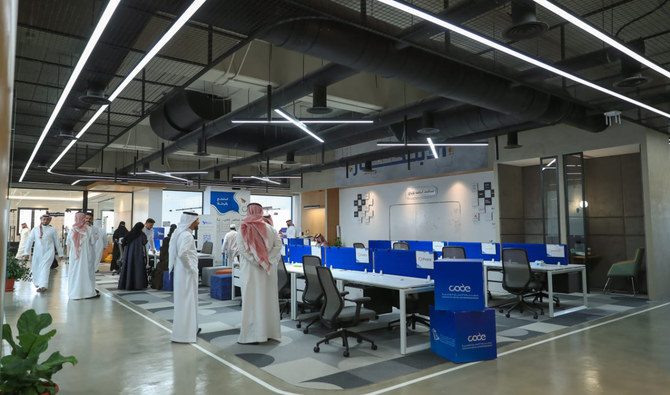Ma’amel Code, a new competition launched by the Center of Digital Entrepreneurship this week, aims to empower Saudi university students and encourage a fresh wave of digital entrepreneurship.
The competition, an initiative of the Ministry of Communications and Information Technology, aims to develop creative digital concepts into viable enterprises, supporting the development of the digital generation.
The ministry’s head of digital innovation, Yousef Abu Bakar, stated that CODE was committed to empowering and assisting start-ups and entrepreneurs in the technology sector.
CODE has established six laboratories throughout the Kingdom, including ones at Princess Nourah University, King Saud University, Qassim University, Dar Al-Hekma University, King Khalid University, and King Faisal University. The organization operates through its branches in several Saudi universities, according to Abu Bakar.
These labs give considerable support to external and university-based initiatives and companies, with highly qualified teams with strong technological expertise.
One of the most prominent initiatives in the range of activities that CODE has presented is the Ma’amel Code competition.
It is designed to support projects headed by students. The procedure is simple: groups of students from every university can offer their creative ideas by visiting the competition page with the help of a technological expert.
The most promising concepts are shortlisted through a thorough evaluation procedure. After being admitted, students go through a quick training course that aims to improve their spirit of competition and ease communication between the labs and the institutions.
In addition to receiving monetary awards, winners will have access to a range of services provided by the laboratories, allowing them to pursue their entrepreneurial goals.
Every CODE office has a bustling atmosphere full of tech startups, initiatives, and ambitious people ready to take use of the many services available.
Because of its participation in the “Tech Growth” initiative, CODE is positioned as an executive partner that supports tech companies—especially small and medium-sized ones—in their efforts to expand into new markets.
The MVP Lab initiative is one of the support programs offered by the collaboration. This initiative provides non-refundable support to incubated startups in the amount of SR150,000 ($40,000), with the goal of promoting the creation of various digital solutions and tech business models.
According to Abu Bakar, there are three further events planned after the Ma’amel Code competition.
These upcoming events, which will all be revealed later and involve various partners and technologies, are sure to further stoke rivalry among college students and CODE’s esteemed partners.


